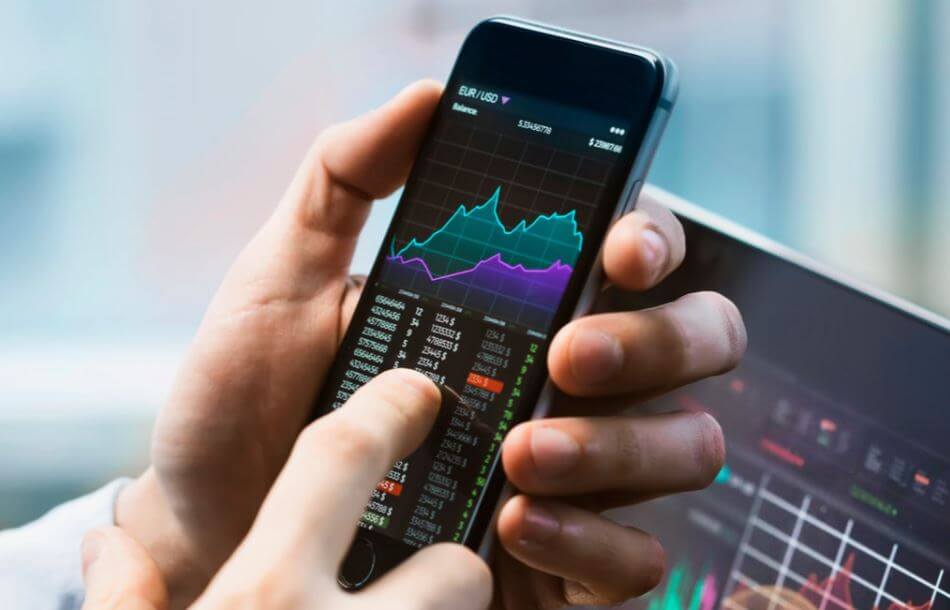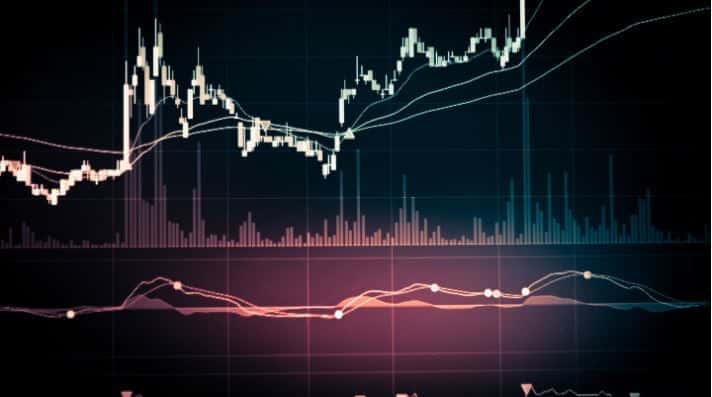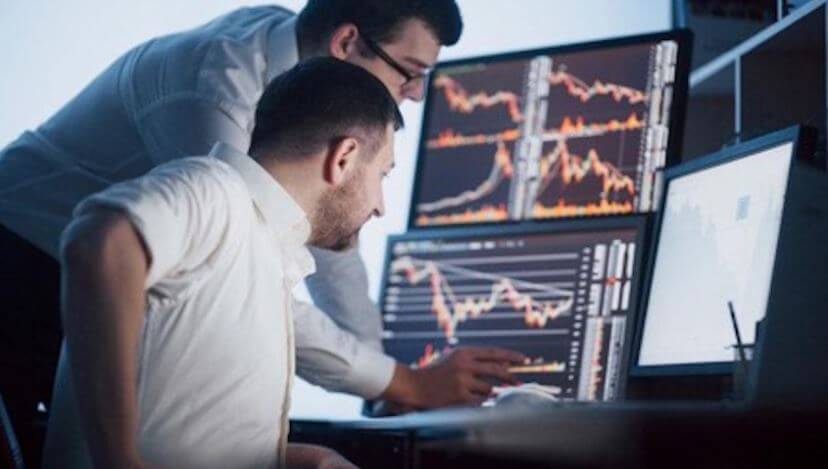Trading currencies online in the foreign exchange market, also called the forex market, can be an electrifying hobby and a great means of investment in South Africa. To put it in perspective, the securities markets trade around $ 22.4 billion a day; the forex market trades about $ 5 trillion a day. You can make a lot of money without using a large initial investment, and speculating the direction of the market can be a big deal.
ALSO READ: Retail Forex Trading is Growing in Popularity And Volume in South Africa
Forex Trading Basics
The type of currency you are selling, or giving to the broker is the base currency . The currency you are buying is called the quote currency. In the forex market, you sell 1 type of currency to buy another type.
The exchange rate tells you how much you have to spend in the quote currency to buy base currency. For example, if you want to buy a few dollars using sterling, you can see an exchange rate that looks like this: GBP / USD = 1.589. This fee means that you will use $ 1,589 to purchase 1 pound sterling.
A long position means that you will be buying the base currency and selling the quote currency. In our example above, you would sell US dollars to buy British pounds.
A short position means that you will be buying the quote currency and selling the base currency. In other words, you would sell sterling to buy dollars.
The bid price is the price at which your broker is willing to buy your base currency in exchange for the quote currency. The bid price is the best price at which you are willing to sell your quote currency on the market.
-
-
- The ask price, or the offer price, is the price at which your broker will sell a base currency in exchange for a quote currency. The ask price is the best available price that you are willing to buy from the market.
- The spread is the difference between the bid price and the ask price
-
Read a quote from the forex market. You will see 2 numbers in a forex market quote: the bid price on the left and the ask price on the right.
Choose the currencies you want to sell and buy.
-
-
- Make decisions about the economy. If you believe that the American economy will continue to weaken, which is bad for the US dollar, then you should probably seek to sell US dollars in exchange for a currency in a country where the economy is strong.
- See the country’s negotiating position. If the country has many goods in demand, it will likely export many of these goods to make money. This trading advantage will accelerate the country’s economy, and this will increase the value of that country’s currency.
- Consider policies. If a country is having an election, its currency will improve if the winner of the election was someone responsible for the tax administration. Also, if a country’s government loosens economic growth regulations, the currency is likely to increase in value.
- Read economic reports. Reports on a country’s GDP, for example, or on other economic factors such as unemployment or inflation, will have an effect on the value of that country’s currency.
-
Learn how to calculate profits.
-
-
- A pip measures the change in value between 2 currencies. Generally, 1 pip is equal to 0.0001 change in value. For example, if your EUR / USD trade moves from 1.546 to 1.547, the value of your currency has increased by 1 pip.
- Multiply the number of pips that your account has changed by a certain change in the quote rate. This calculation will tell you how much your account has increased or decreased in value.
-

Opening a Forex Account with a Broker
Research different brokerages. Take these factors into consideration when choosing your broker:
-
-
- Look for a broker that has been in the market for 10 years or more. Experiences indicate that the company knows what it is doing and that it knows how to take care of its customers.
- Try to check if the broker is regulated by a main supervisory body. If your broker voluntarily submits to government oversight, then you can have greater peace of mind regarding your broker’s honesty and transparency. Some supervisory bodies include:
-
- South Africa: Financial Sector Conduct Authority (FSCA)
- USA: National Futures Association (NFA) and the Commodity Futures Trading Commission (CFTC)
- United Kingdom: Financial Services Authority (FSA)
- Australia: Australian Securities and Investment Commission (ASIC)
- Switzerland: Swiss Federal Banking Commission (SFBC)
- Germany: Bundesanstalt für Finanzdienstleistungsaufsicht (BaFIN)
- France: Autorité des Marchés Financiers (AMF)
-
- See how many products the broker offers. If she also trades in real estate and commodities, for example, you will know that she has a larger customer base and a wider business reach.
- Read comments, but be careful. Sometimes unscrupulous brokers will go to comment sites and make positive comments to themselves to improve their reputations. Comments can give you an idea about a particular broker, but you should always read them suspiciously.
- Visit the broker’s website. The website must look professional, and the links must be active. If the website says something like “Coming Soon!” or if you don’t look professional, stay away from this broker.
- Check the transaction costs for each trade. You should also check how much your bank will charge to send money to your forex account.
- Try to focus on the essentials. You need good customer support, easy transactions and transparency. You should prefer brokerages that have a good reputation.
-
Ask for information about opening an account. You can open a personal account or you can choose a managed account. With a personal account, you can run your own trades. With a managed account, your broker will execute the trades for you.
Fill in the appropriate documentation. You can request to receive the documentation by mail or to download, usually in the form of a PDF file. Try to verify the costs of transferring money from your bank account to your brokerage account. Fees can swallow your profits.
Activate your account. Generally, the broker will send you an email containing a link to activate your account. Click on the link and follow the instructions to start trading.

Start Trading
Analyze the market. You can try several different methods:
-
-
- Technical analysis: Technical analysis involves reading graphs or historical data to predict how the movement of a given currency pair will be based on past movements. You can usually access these charts with your broker or use a popular platform like Metatrader 4.
- Fundamental analysis This type of analysis involves looking at a country’s economic fundamentals and using this information to influence its trading decisions.
- Sentimental analysis: This type of analysis is very subjective. Essentially, you try to analyze the market climate to find out if its value will increase or decrease. While it may not always be possible to know exactly what market sentiment is, you can often make good speculations that can influence your trades.
-
Determine your margin. Depending on your broker’s policies, you can invest little money, but still make big deals.
-
-
- For example, if you want to trade 100,000 units at a 1 percent margin, your broker will ask you to deposit $ 1,000 into your account as a guarantee.
- Your gains and losses will add or deduct amounts from your account. For this reason, a good general rule of thumb is to invest only 2 percent of your money in a given currency pair.
-
Open your order. You can open different types of orders.
-
-
- Market orders: With a market order, you instruct your broker to execute your buy / sell at the current market price.
- Orders limit : These orders tell your broker to execute a trade at a specific price. For example, you can buy a currency pair when it rises and reaches a certain price, or sell another when it falls and reaches a certain price.
- Stop orders : A stop order is a choice to buy a currency pair above the current market price (anticipating its value to increase) or sell below the current market price to cut losses.
-
Check your profits or earnings. Above all, don’t let your emotions come into the picture. The forex market is volatile, and you will see many ups and downs. What matters is to continue doing your research and following your strategy. Eventually, you will see profits.
Forex Trading Tips
- Start trading forex with a demo account before investing real money. In this way, you can understand the process and decide if the forex market is for you. When you are consistently doing good trading on a demo account, you can switch to a live account.
- Try to focus on using only about 2% of your total account. For example, if you decide to invest $ 1000, try to use only $ 20 to invest in a particular currency pair. Prices in the forex market are extremely volatile, and you must have enough money to cover losses.
- Limit your losses. Let’s say that you invested $ 20 in EUR / USD, and that today, your total losses are $ 5, you will not have lost any money, as the price has not reached your stop-loss order and can reverse and bring profits. It is important that you use only 2% of your account per trade, when combining the stop-loss order with this 2%. Having enough capital to survive negative times will allow you to keep your trading open and possibly see profits.
- If your currency pair goes against your position and you don’t have enough money to cover the move, your order will be automatically closed. Try not to make this mistake when using stop-loss orders .
- Remember that losses are not losses unless your position is closed. If your position is still open, your losses will only be counted if you choose to close the order.
Warnings
- Make sure your broker has a physical address. If a broker does not have an address, you should look for another one to avoid scams.
- Ninety percent of daily forex traders are unsuccessful. If you want to learn how to avoid making common mistakes that will lead to bad business, consult a trusted fund manager.
Image Courtesy: Supplied
